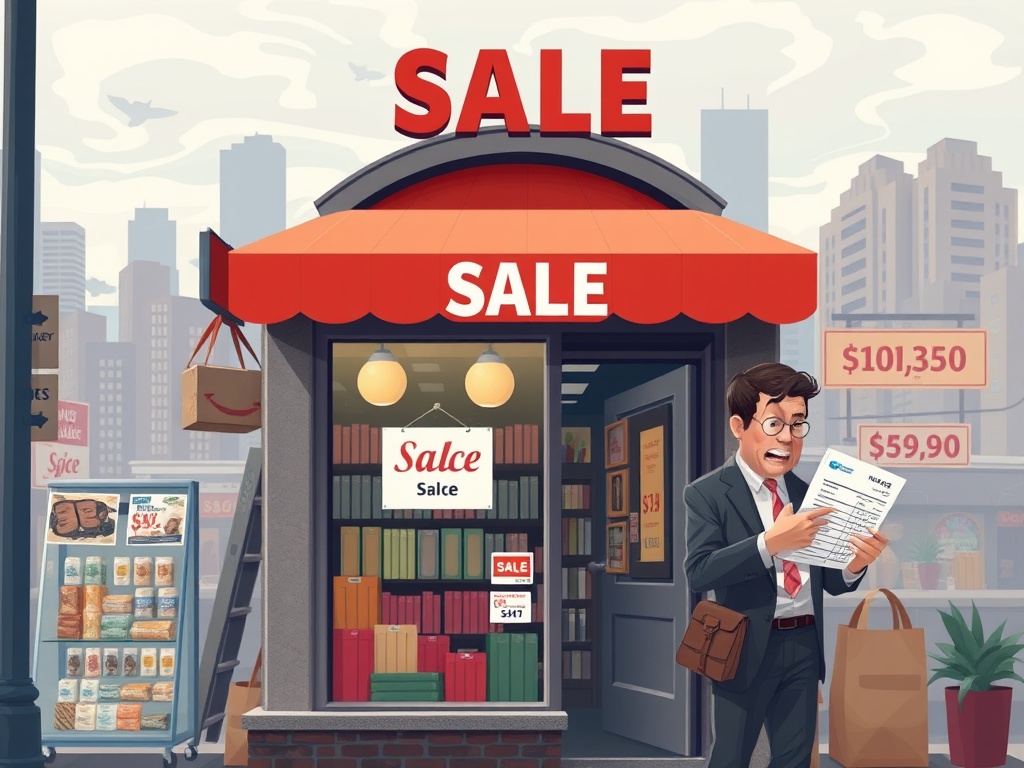Small Businesses Warn of Tax Hikes and Rising Costs in 2025

Small businesses are increasingly vocal about the significant challenges posed by tax hikes and escalating operational costs as they navigate the economic landscape in 2025. In her inaugural Budget delivered last October, the Chancellor announced a rise in national insurance contributions (NICs) for employers, alongside an increase in the national minimum wage (NMW). These changes are set to take effect in April, and many firms are already bracing for the impact.
As businesses contend with high rents and surging energy bills, the burden is becoming increasingly heavy. Although inflation peaked in 2022, the prices of goods and services continue to climb, recently hitting a ten-month high of three percent in January. Mark Williams, CEO of Keystone Brewing Group, which operates multiple brewing brands, expressed that rising costs are affecting “every corner of the business, from raw materials and energy to wages and operational expenses.”
The recent 6.7 percent increase in the NMW, combined with the higher employer NICs, is expected to “significantly” heighten the financial strain this year, according to Williams. He elaborated, “Every part of the operation is under scrutiny to drive efficiencies and manage costs without compromising on quality. Supply chain strategies are being reassessed, and energy-saving measures are being explored, but ultimately, rising expenses are squeezing margins.”
With costs mounting across various fronts, businesses are confronting difficult decisions regarding pricing, staffing, and investment. Williams cautioned that without meaningful government intervention, the pressure to pass costs onto consumers or reduce operations will only intensify.
Aside from rising taxes, other business owners have identified escalating bills as a primary strain on their finances. Beki Stevenson, co-founder of Berber Leather, started her business with her father, Paul, in 2015. She noted that soaring energy bills have posed the greatest challenge, prompting them to close their physical store and shift to an online-only model. Stevenson, 36, from Richmond in North Yorkshire, imports handmade leather goods from Morocco and sells them exclusively online.
“From electricity to stock, transport to packaging, even everyday items like coffee and printer paper have seen an increase,” Stevenson explained. “However, for our business, the most significant cost has been the rising fuel bills. The contrast between our monthly bills this year and three or four years ago is staggering, and this is just for heating and lighting in our small office. I feel fortunate that we don’t run a business that heavily relies on power.”
In light of this, Stevenson shared, “The overheads are much less for us now with just an office and a warehouse, and it also allows us to be more flexible with staff hours and holidays. We have also reduced our participation in shows and events, such as agricultural and trade shows and Christmas markets, as we find consumer spending has decreased significantly, despite the costs of having a stand at these events rising year on year.”
To offset rising costs without burdening wholesale and retail customers, Stevenson has been taking a reduced salary and forgoing personal bonuses to keep investing in the business.
Another entrepreneur, Alison Boutoille, 35, founder of CityStack—a project supporting independent pubs—shared her struggle with cost increases since starting her business in September 2021, shortly after relocating to the UK from France. She revealed that rising expenses have forced her to pay herself a minimal salary each month as she reinvests most of her revenue back into the business.
Boutoille, who currently has no employees, stated, “I have observed a steady increase in most cost sources. To mitigate the impact, I have increased the volume of my orders, buying larger batches to reduce the unit price, resulting in larger stock inventories for my business. I have also transitioned from a co-working space to working more from home and in the pubs we collaborate with.”
While the increase in employer NICs—from 13.8 percent to 15 percent starting in April—is a considerable concern for many business owners, Boutoille emphasized that high rent prices have been even more detrimental. “The most significant increases I’ve faced are in rent, both personally and for the pubs I work with. The rise in employer NICs pales in comparison to the rent increases, so I believe small businesses should receive special consideration and protection from these substantial rent hikes,” she asserted.
Here are some of the increases she has noted:
- Production Costs – Increased by 20 percent to 30 percent from 2021 to now, primarily due to rising paper costs.
- Shipping – She has had to pass this increase onto her customers. The cost of sending a large letter under 100g has surged from 94p in 2021 to £1.55 by 2024—a staggering 62 percent increase.
- Co-working Space – Previously, she worked from a co-working space that charged £100 per month in 2021-2022. In 2023, the cost jumped to £250, prompting her to cancel her subscription and work mainly from home and collaborating pubs.
- Marketing Tools – Costs have escalated by 20 percent to 50 percent from 2021 to now across website services, newsletter tools, and social media platforms.
Robert Salter, a director at audit, tax, and business advisory firm Blick Rothenberg, cautioned that this pressure on pricing is expected to escalate in the coming months. “This is because those firms that haven’t yet adjusted their prices for the impending wage and NIC rises will need to do so shortly,” he warned. “The government’s significant pay increases for various public sector workers, without any evidence of improved efficiency through changes in working practices in the Autumn, is also contributing to rising inflation. Private sector employers are competing for talent, and if public sector wages rise, the private sector will also need to match them to attract employees. This, too, is yet another cost that businesses will likely have to pass on to consumers.”




